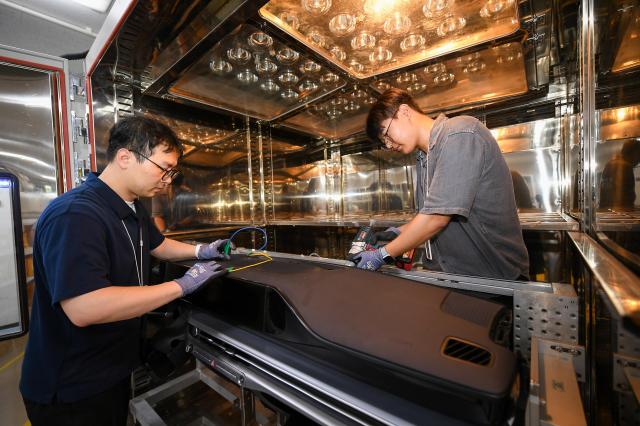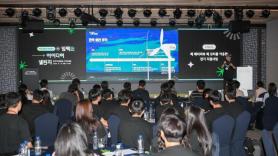
The firm is focusing on three key strategies: creating sustainable materials to meet global environmental regulations, developing innovative materials to lead the mobility sector, and implementing digital material technologies for virtual verification.
"We are developing eco-friendly materials to respond to environmental, social, and governance (ESG) demands while transitioning to digital technologies. We will enhance mobility competitiveness by developing innovative materials that diversify our portfolio and reduce external dependencies," Kim Mi-ro, vice president of R&D fundamental technology research group, said.
Hyundai Mobis has successfully developed a lower arm protective cover, a product that prevents scratches in the lower part of cars, in using 50 percent recycled plastic content, surpassing the European Union's proposed 25 percent recycled content requirement for new vehicles by 2030. The company is also working on about 30 new materials for various automotive components, including cockpit modules, lamps, and airbags.
In addition to sustainable materials, Hyundai Mobis is developing new alloys that reduce the use of rare metals like nickel in electric vehicle (EV) components such as inductors, which convert power in EVs. The company has created an inductor material with 30 percent nickel content, down from the previous 50 percent, and is currently evaluating a nickel-free alternative.
Copyright ⓒ Aju Press All rights reserved.


